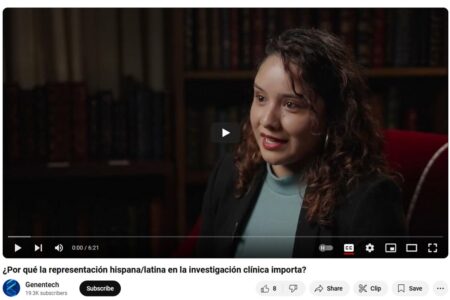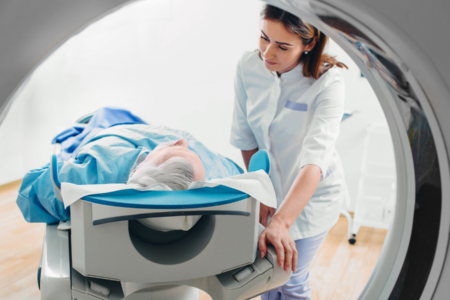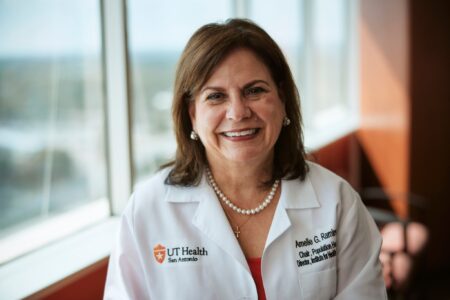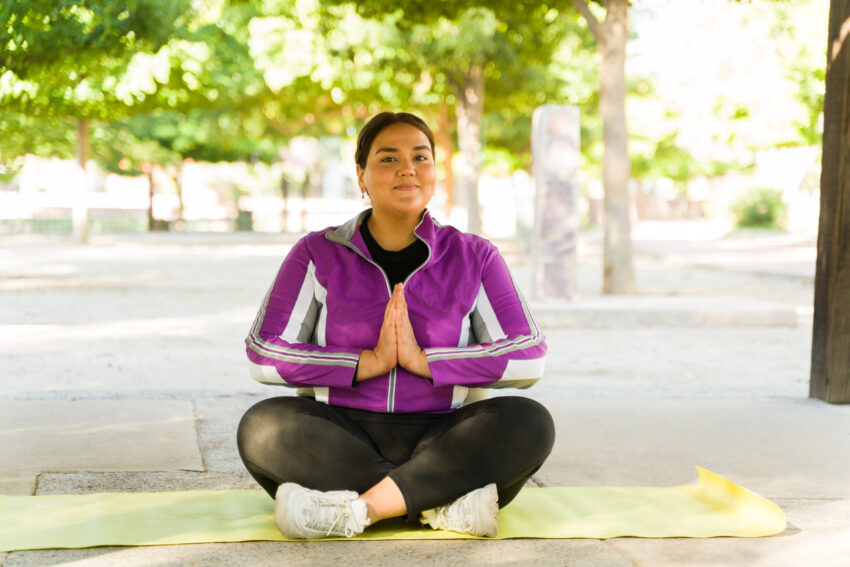
Share On Social!
Stress is a grim reality for many Latinas after breast cancer.
Survivors deal with health, fitness, finance, discrimination, and social challenges that reduce their quality of life and boost their risk of new or recurring cancers.
That is why Drs. Amelie G. Ramirez, Daniel Carlos Hughes, and Patricia Chalela at UT Health San Antonio will conduct a holistic intervention to improve Latina breast cancer survivors’ physical, mental, and spiritual well-being, thanks to a new, three-year, $600,000 grant from Susan G. Komen.
Researchers will recruit 70 breast cancer survivors, half of them Latinas. Over six months, they will get:
- therapeutic yoga with meditation
- optional tailored exercise and diet counseling
- real-time psycho-social support based on survivors’ motivational status
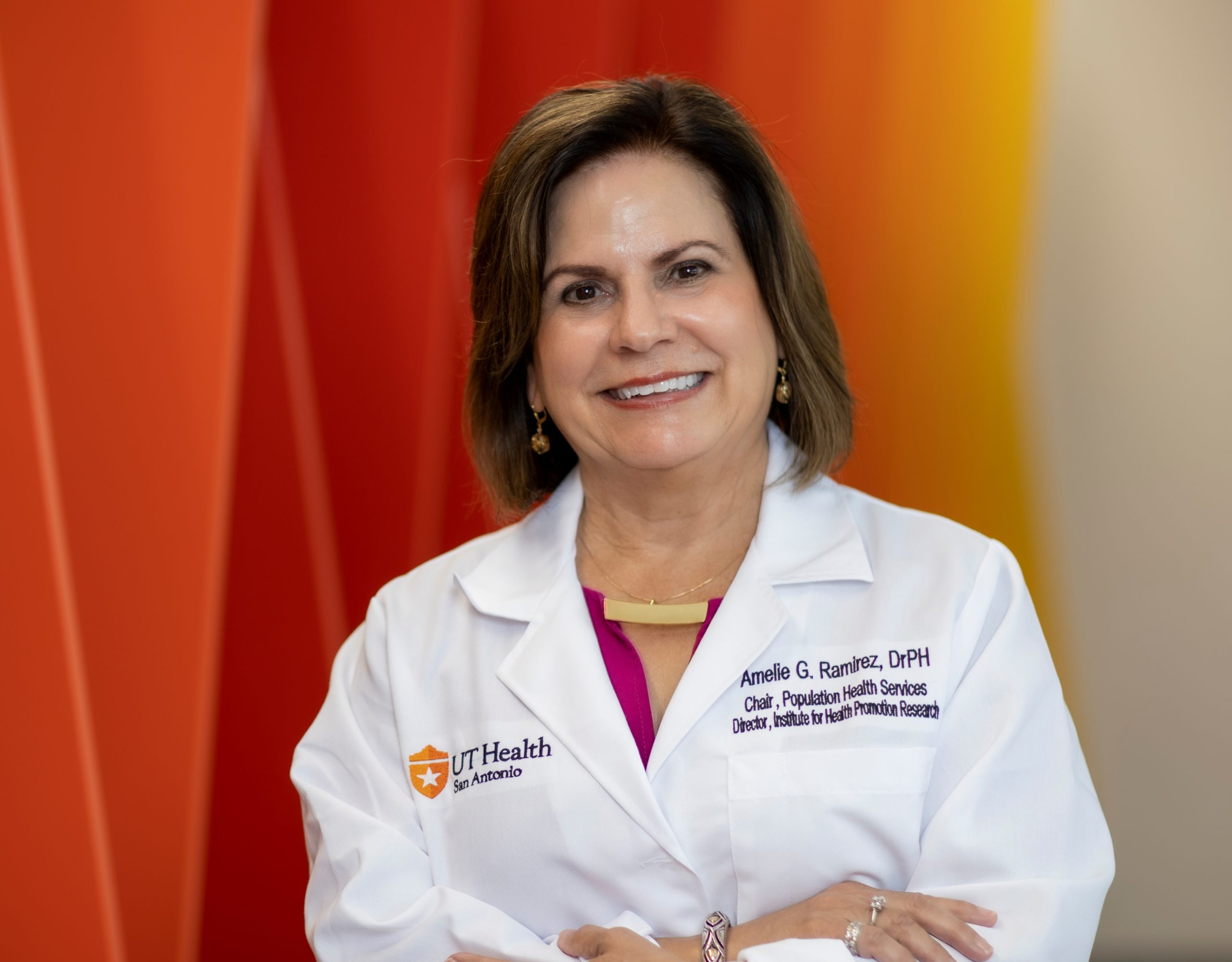
The team will observe differences in the results to culturally adapt a program for 30 more Latina survivors.
“By focusing on the mind, body, and spirit, we hope to improve quality of life and holistic wellness for Latina breast cancer survivors,” said Ramirez, leader of the new study and director of the Salud America! program at the Institute for Health Promotion Research in the Department of Population Health Sciences at UT Health San Antonio, home of the NCI-designated Mays Cancer Center.
Latinas face a heavy burden of breast cancer.
Breast cancer is the most commonly diagnosed cancer among Latinas. The breast cancer incidence rate increased 0.4% annually in Latinas from 2006 to 2015, but overall remains 29% lower in Latinas than White women.
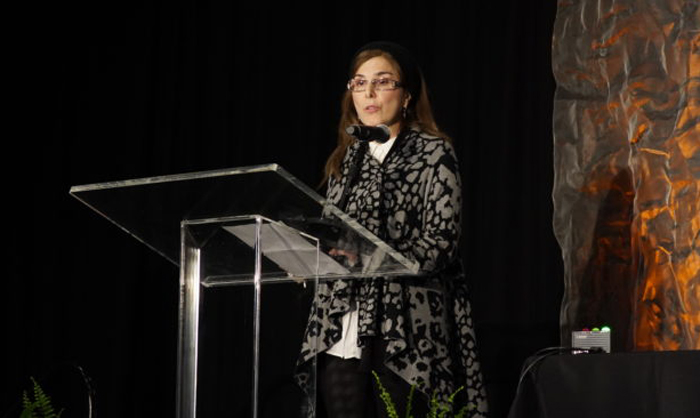
“Breast cancer is still the leading cause of cancer death among Latinas,” said Dr. Chalela, co-leader of the new study and researcher at the Institute for Health Promotion Research at UT Health San Antonio. “Although mortality rates are declining overall, the decline is lower for Latinas.”
Many Latinas experience a stressful cancer survivorship journey.
Stressors include higher rates of obesity, lower rates of physical activity, discrimination, financial issues, and limited access to health care.
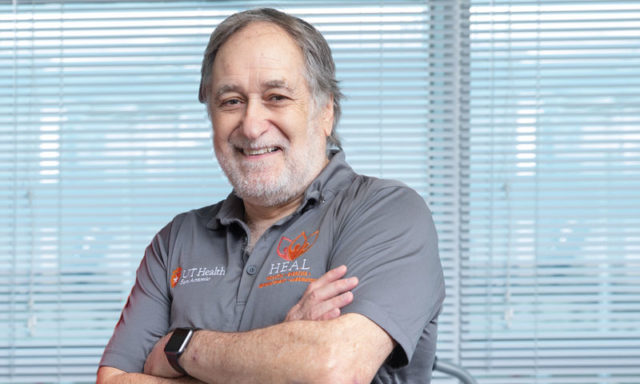
“Stress is not yet proven to directly damage the DNA of a cell. But studies show that the cascade of the human response to chronic stress results in down regulation of physical, mental, spiritual wellbeing. And, for breast cancer survivors, an increased risk for secondary breast cancer or risk for new primary cancers,” said Dr. Hughes, co-leader of the new study and researcher at the Institute for Health Promotion Research at UT Health San Antonio.
Drs. Ramirez, Chalela, and Hughes have worked together over the years to improve outcomes among Latina breast cancer survivors, from patient navigation to support groups, and yoga and exercise to illuminating the full cancer journey.
In their new project, they will address the “whole” person, including physical, psychological, and spiritual wellbeing.
They will use several scientific measures to assess their holistic intervention of yoga-based exercise with meditation, tailored exercise and diet counseling, and real-time psycho-social support.
“Support from Susan G. Komen will enable our transdisciplinary team, including our patient advocates, to investigate how to best optimize health-related quality of life outcomes for cancer survivorship,” Ramirez said.
In June 2022, Susan G. Komen announced the UT Health San Antonio project among 48 it is funding with $21.7 million to focus on improving patient outcomes.
“The investment we are announcing today in a broad portfolio of cutting-edge research will help advance breast cancer care and improve outcomes for all people diagnosed with breast cancer, including underserved populations and those with few treatment options,” said Victoria Wolodzko Smart, SVP of Mission at Susan G. Komen, in a news release.
Ramirez, Chalela, and Hughes hope the effort will improve cancer outcomes across the region.
“Our ultimate objective is to apply what we learn to make a true seismic-shift difference in addressing cancer-related health disparities,” Ramirez said. “And not only for Latina breast cancer survivors in South Texas, but ultimately for the whole cancer survivorship community.”
By The Numbers
142
Percent
Expected rise in Latino cancer cases in coming years

